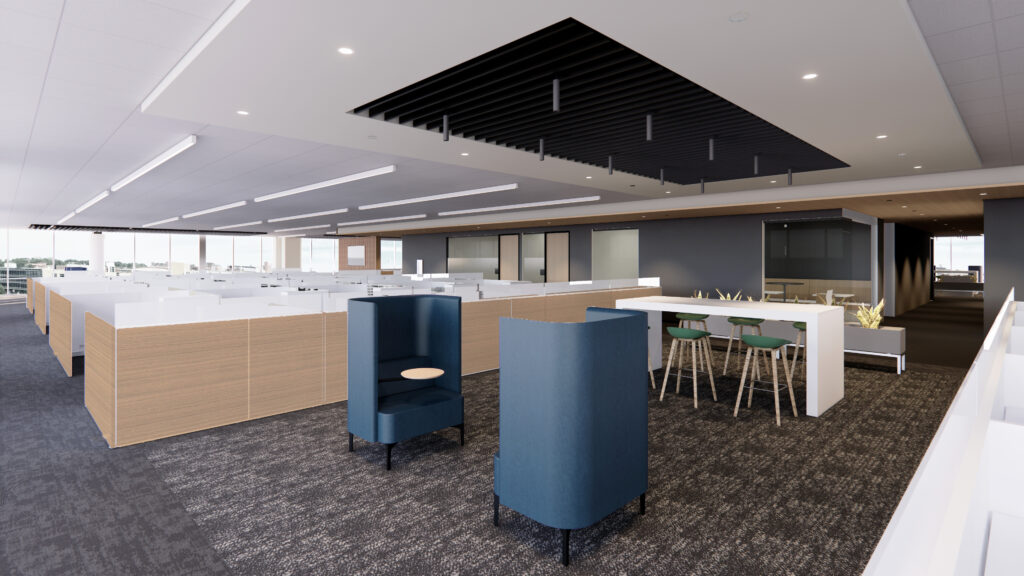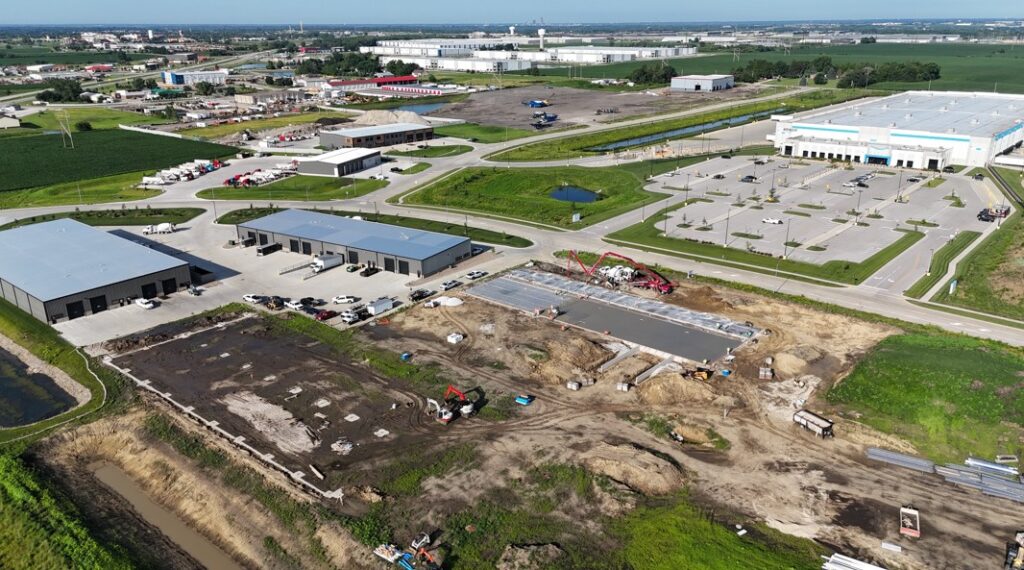20 years of improving Ingersoll

SUZANNE BEHNKE Sep 26, 2018 | 9:48 pm
5 min read time
1,122 wordsBusiness Record Insider, Real Estate and DevelopmentIt’s been 20 years since the beginning of Restoration Ingersoll, a group of leaders, residents and business owners who wanted to upgrade Ingersoll Avenue, make it a nicer place for a stroll.
There was an entertainment event Aug. 25, Ingersoll Live 2018 — with bands, artists and food and billed as an end of summer block party. It seemed to be a milestone of sorts that “The Avenue” is coming into its own. The Business Record asked some of the current leaders in that effort — Matt Coen, Brianne Sanchez and Soozie McBroom — for an update.
What’s the history of the effort — for those who may not remember Ingersoll from 20 years ago?
Matt Coen: Restoration Ingersoll was founded in 1998. … The role was to establish the vision and raise private dollars (which were matched with public funding) for the planning and construction of enhanced streetscapes along Ingersoll Avenue. This role has now evolved to include several additional initiatives, including promotion of the district, public art installations and economic development efforts.
What is the story of getting the self-support municipal improvement district established?
Coen: In the early years, the Restoration Ingersoll board operated as an “action fund” administered with the help of the Community Foundation of Greater Des Moines. In addition, the Community Foundation provided an early Community Better Grant to the project. This grant and partnership was instrumental in establishing the credibility and fundraising capabilities of the organization. Upon completion of the initial pilot project in 2008, an SSMID was established to provide upkeep and maintenance to the areas between 28th and 31st Street on Ingersoll Avenue. Several years later in 2012, with the help of consultant and longtime Avenues champion Ted Irvine, Restoration Ingersoll set about to develop a strategic plan for future public improvements within the district. The result of this effort was the establishment of an Urban Renewal Plan (TIF) and a significant expansion of the SSMID area. The role of the SSMID was also expanded beyond maintenance to also include marketing/promotion, capital improvements and economic development at that time. The SSMID, known as The Avenues of Ingersoll & Grand, now provides administrative and implementation support, while Restoration Ingersoll (now known as The Avenues Restoration) continues to provide the visioning for future projects and initiatives along both Ingersoll and Grand.
Who was involved 20 years ago?
Coen: A number of individuals were involved in the early stages. Soozie McBroom, Janis Ruan, Kaye Lozier, Kimberly Hansen, Dave Nagel, Matt Meline, Mark Holub, Jason Van Essen, Christine Hensley and others made up the initial committee. Many of these individuals remain involved. Today The Avenues organizations benefit from the active participation of nearly 85 volunteers.
You caught the attention of the Business Record not because of the 20th year since starting the effort but with the breadth of what is going on in that district — longtime changes to business, public art, etc. With our readers focusing a great deal on business, could you list some of those changes?
Coen: The Avenues is fortunate to be home to many businesses that have operated in their present location for many decades. In addition, some of the metro’s most acclaimed new eateries have chosen Ingersoll for their operations. Years ago, we had a motto, “It’s all on Ingersoll,” and that rings true today. The Avenues of Ingersoll & Grand are home to professional services, banks, boutique retailers, restaurants, bars, grocers and more. In addition to the businesses, The Avenues has enjoyed significant investment in real estate development in recent years amounting to nearly $50 million in investment. With projects such as the recently completed Soll apartment building and those under construction at 40th street (4000 Ingersoll Apartments) and 31st street (Two Rivers Bank), the district is set to see significant growth in valuation over the next 20 years.
Sanchez: We’ve found collaboration has helped us move forward on our public art initiatives, too, which help make The Avenues attractive for business owners and residents. We will soon break ground on a large sculpture by Des Moines artist Larassa Kabel, thanks to grant support from Bravo Greater Des Moines and the Iowa Arts Council.
Perhaps this is a question for Soozie. What has the project been like since the start?
McBroom: From the beginning this has been a community-spirited project. … Restoration Ingersoll was the first public-private project of its kind in Des Moines and our group served as pioneers for this unique brand, injecting new life into neighborhoods and business districts alike. Restoration Ingersoll has accomplished a lot since 1998. We have completed a $3.4 million streetscape project with the help of the Greater Des Moines Community Foundation, 16 corporations, six major donors, pledges from 50 of 68 business and property owners, 100 pledges from stakeholders, and grants from [the state], Prairie Meadows and Polk County. Currently, The Avenues has hired a consultant to help expand the streetscape project. In 2012, a Revitalization Strategy was developed through a community process led by Ted Irvine for the district and has been approved by the City Council.
The Avenues Restoration board has annual strategic goals with a dedicated board and committees to support those goals. Board members include Matt Coen, Chris Diebel, Sara Gaskell, Mark Holub, Mike Hutchison, Chris Irvine, John Lorentzen, Kaye Lozier, Dave Nagel, Christine Polson, Janis Ruan, and Brianne Sanchez and Soozie McBroom. Our master plan has defined streetscape standards that are being implemented with each new development and property upgrade; these projects are eligible for grants funded by [tax increment financing]. We have identified our corridor as a TIF district. We are a SSMID district as well directed by Matt Coen. …
And finally, we want you to know that The Avenues of Ingersoll & Grand is thrilled by the success this project has experienced thus far, and we’re excited about the future vitality of this unique district in the heart of Des Moines.
What are the next steps going forward? Any current challenges to more progress?
Coen: Redevelopment is always difficult. Our primary challenges are maintaining the authenticity and neighborhood focus of the Ingersoll and Grand corridors (the adjoining census tracts account for nearly 20,000 residents). The second is to minimize disruption to businesses and residents during construction of projects and public improvements. We are also currently working diligently to have the next phase of streetscape and infrastructure improvements be included in the city of Des Moines Capital Improvement Program. We believe this is a sound and wise investment for the community, as the economic growth of The Avenues is performing as outlined in the 2012 Revitalization Strategy. The future is bright for the neighborhoods, businesses and institutions that make up the Avenues of Ingersoll and Grand.









